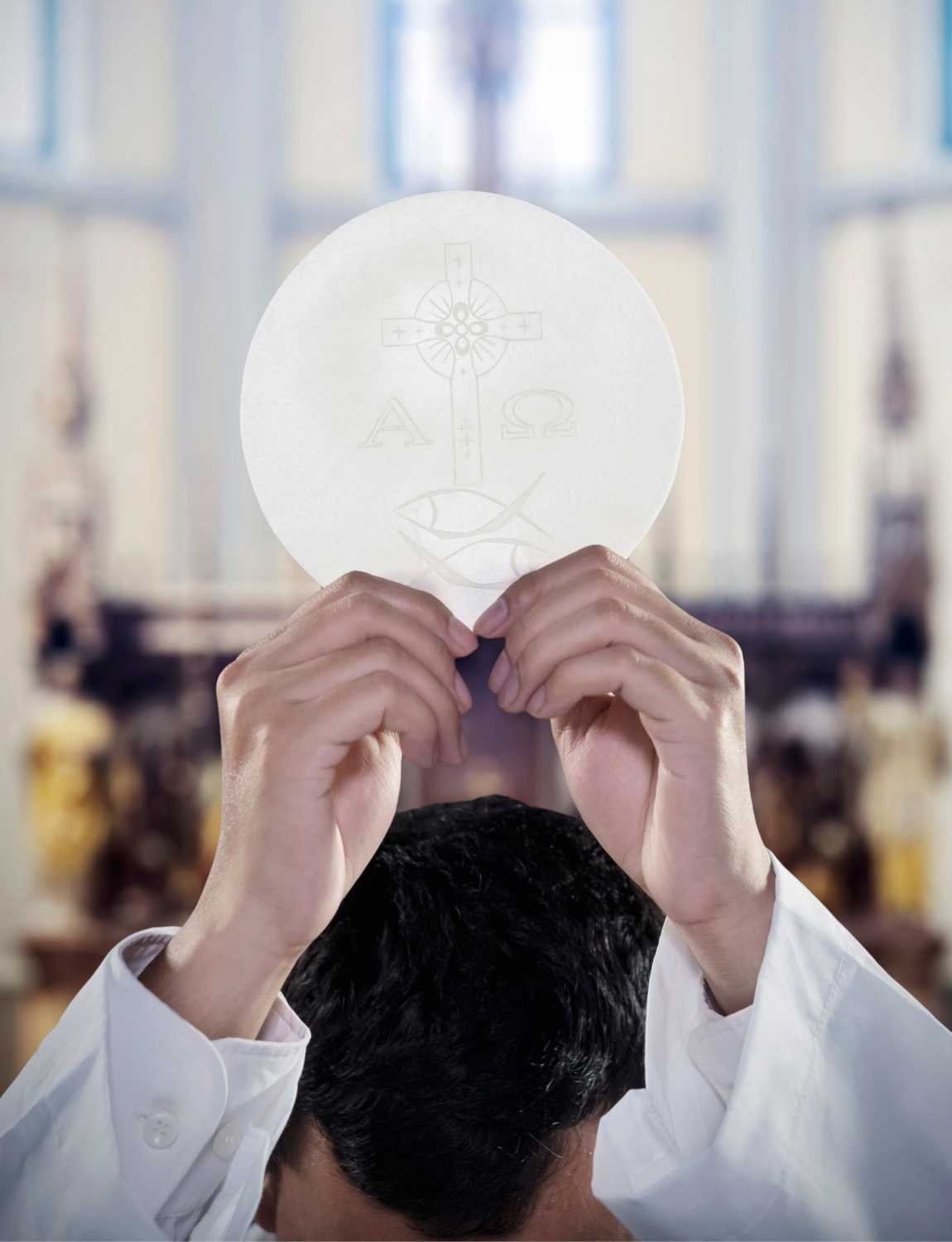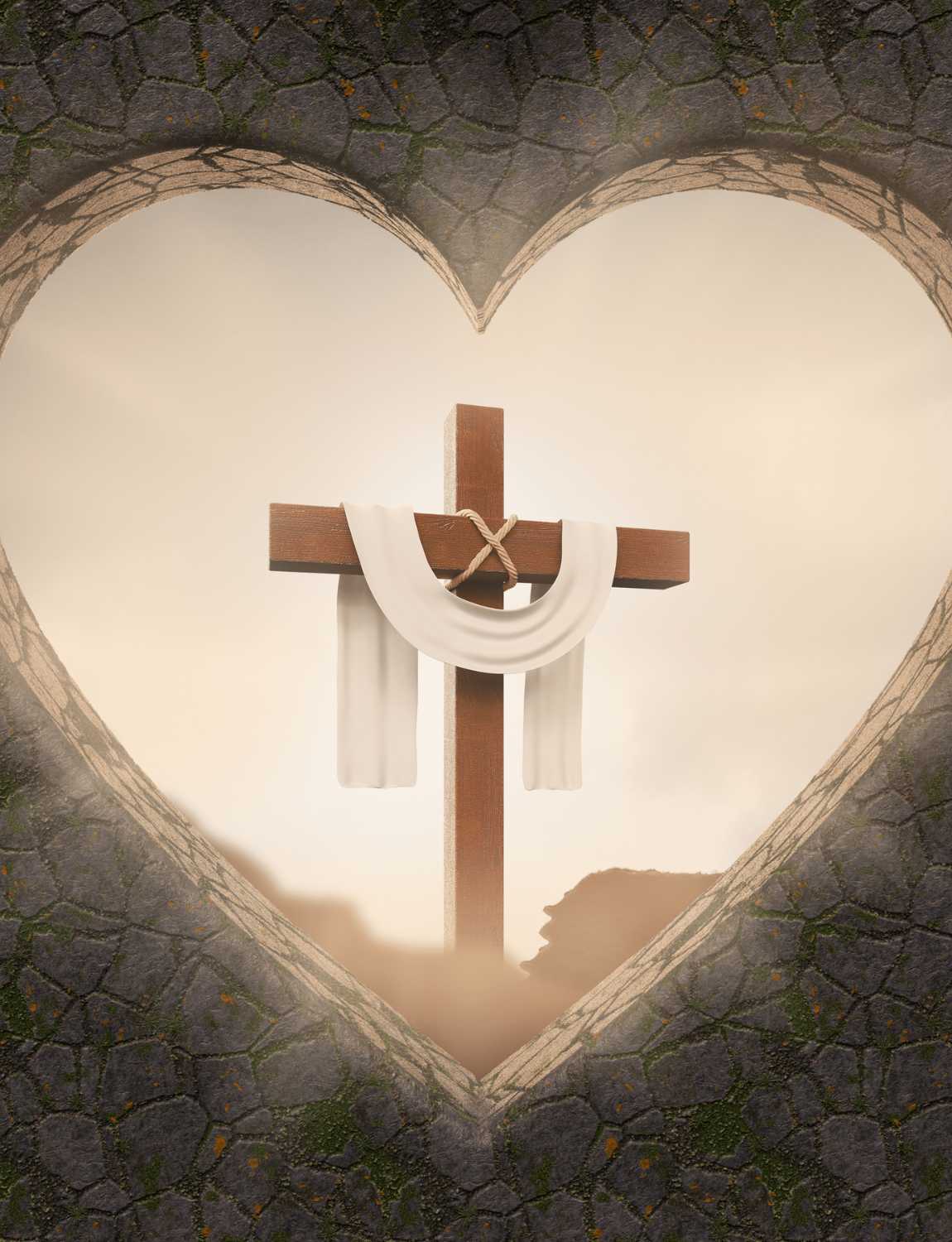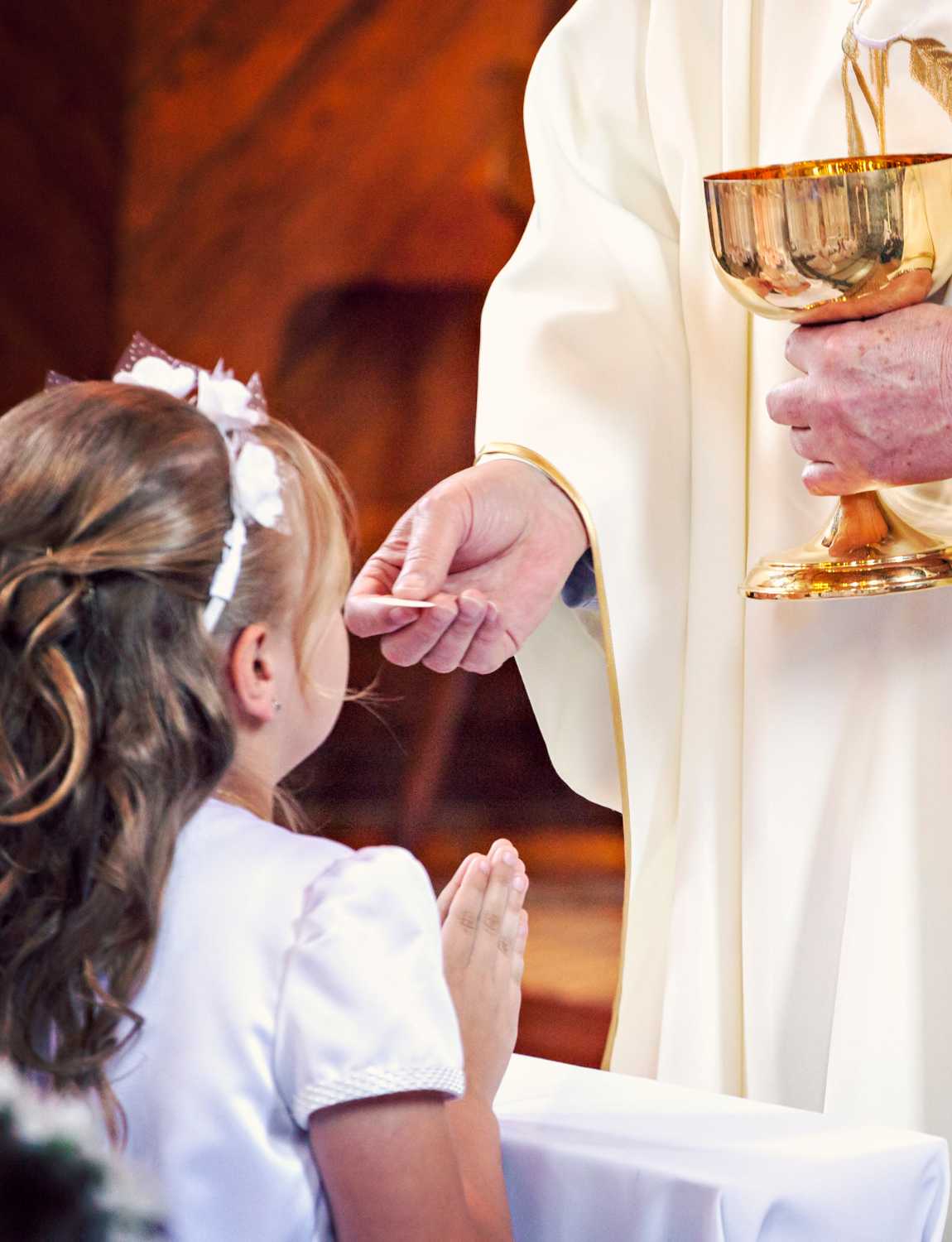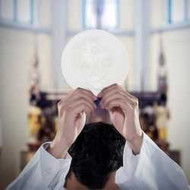The Holy Eucharist
Posted by Hannah DeVivo on Apr 21st 2023

April 21, 2023
Author: Hannah DeVivo
Peace be with you!
April is the month of the Holy Eucharist, and so I thought it only fitting to make it the topic of today’s blog post!
Most of us enjoy a good romantic story. There’s something special and beautiful about the “boy next door” who is faithful and waits for his best friend to see that he’s been there waiting the whole time. We love to see movies about someone sacrificing their own well-being out of love for another. We love the adventure and thrill of a great story that shows what true love is. J.R.R Tolkein, arguably one of the best storywriters of all time, said “Out of the darkness of my life, so much frustrated, I put before you the one great thing to love on earth: the Blessed Sacrament … There you will find romance, glory, honour, fidelity, and the true way of all your loves upon earth … which every man’s heart desires.” He knew that the Eucharist contains in It the greatest of all stories-and one that is true!
What is the Eucharist?
The Catechism of the Catholic Church provides the best and complete answer of what the Eucharist is:
The holy Eucharist completes Christian initiation. Those who have been raised to the dignity of the royal priesthood by Baptism and configured more deeply to Christ by Confirmation participate with the whole community in the Lord’s own sacrifice by means of the Eucharist.
At the Last Supper, on the night he was betrayed, our Savior instituted the Eucharistic sacrifice of his Body and Blood. This He did in order to perpetuate the sacrifice of the cross throughout the ages until he should come again, and so to entrust to His beloved Spouse, the Church, a memorial of His death and resurrection: a sacrament of love, a sign of unity, a bond of charity, a Paschal banquet ‘in which Christ is consumed, the mind is filled with grace, and a pledge of future glory is given to us.’”
The Eucharist is “the source and summit of the Christian life.” “The other sacraments, and indeed all ecclesiastical ministries and works of the apostolate, are bound up with the Eucharist and are oriented toward it. For in the blessed Eucharist is contained the whole spiritual good of the Church, namely Christ himself, our Pasch.”
“The Eucharist is the efficacious sign and sublime cause of that communion in the divine life and that unity of the People of God by which the Church is kept in being. It is the culmination both of God’s action sanctifying the world in Christ and of the worship men offer to Christ and through him to the Father in the Holy Spirit.”
Finally, by the Eucharistic celebration we already unite ourselves with the heavenly liturgy and anticipate eternal life, when God will be all in all.
In brief, the Eucharist is the sum and summary of our faith: “Our way of thinking is attuned to the Eucharist, and the Eucharist in turn confirms our way of thinking.” (CCC, 1322-1327)

How is the Eucharist the Literal Body of Christ?
There are several Christian denominations that receive communion in their services, but something that sets Catholics apart is our belief that the Eucharist is the true Body of Christ. It is normal if you have ever felt confused or unsure that the Eucharist we partake in during the Mass is more than a piece of bread. Thankfully we have the richness of our Faith, which provides us with ample confirmation of the miraculous truth that we are indeed receiving God Himself.
In the Gospel of John, Jesus says, “I am the living bread that came down from heaven; whoever eats this bread will live forever; and the bread that I will give is my flesh for the life of the world.” He continued to talk in this way, though the Jews around Him murmured. Jesus said, “Amen, amen, I say to you, unless you eat the flesh of the Son of Man and drink his blood, you do not have life within you. Whoever eats my flesh and drinks my blood has eternal life, and I will raise him on the last day. For my flesh is true food, and my blood is true drink. Whoever eats my flesh and drinks my blood remains in me and I in him” (John 6:51-56).
Jesus was very clear that those who want to remain in Him and have God within them must eat of His flesh. The Greek translation of the Bible uses the word “trogo” in this portion when Jesus speaks of eating His Flesh. Trogo does not only mean “to eat,” but specifically, “to gnaw, or chew.” Scripture tells us that many of Jesus’ disciples stopped following Him and returned to their old ways of living after this teaching. They could not accept what Jesus was saying. Jesus allowed them to leave. He did not prevent them from going by saying that He was only speaking figuratively.
At the Last Supper, Jesus instituted the Sacrament of the Holy Eucharist and turned the bread and wine into His own Body and Blood. When the Mass is celebrated today, this exact phenomenon takes place. It is called transubstantiation. This is when the priest offers up the Eucharistic elements and consecrates them to God, who transforms them. The bread and the wine still look, feel, and taste like bread and wine, but they are truly Christ’s Body and Blood.

God Desires YOU
As I stated in the beginning, the Eucharist is the most truly romantic thing in this world. Many of us don’t think of Jesus as a romantic, but Benedict XVI reminds us in his first encyclical that God loves us not only with “agape” which means self-sacrificial love, but also “eros” which is a passionate and desiring love. He thirsts for us. Not only did Jesus die for love of us, but He made a way to be with us every single day in the Eucharist! He is not only faithful to the end but desires us so much that He found a way to never be without us.
By us eating the Body and Blood of Jesus, we are able to be united with Him in one of the most intimate ways possible. We consume Him and become one flesh. This union is open to everyone regardless of the vocation that we are called to. This is why those who take vows of chastity or are called to a consecrated life are still fed, desired, and united with a lover who is faithful and able to meet their needs. These people are not lacking in love or true intimacy.
Miracles of the Eucharist
There have been many instances where consecrated Hosts have physically transformed into pieces of human flesh. Tests done on some of these fragments have shown them to be identical to the myocardial (heart) tissue of a living person. Furthermore, doctors were able to determine that there was indication of stress in the heart tissue—leading them to conclude that the person to whom the tissue belonged was suffering and close to death. Just last month in Connecticut, there was a miracle where the Eucharist was multiplied. I highly recommend researching Eucharistic Miracles. They are not only astonishing, but also a confirmation of the truth that the Eucharist is more than a symbol.

What does Jesus Promise When We Receive Him in the Eucharist?
When we receive Jesus in the Eucharist, He promises that we will be strengthened with Him in this life and remain with Him forever. Jesus said, “I am the bread of life; whoever comes to me will never hunger, and whoever believes in me will never thirst” (John 6:35). When we eat our meals, our bodies grow strong and healthy. When we receive the Eucharist, our hearts and souls grow strong and healthy as well.
The Eucharist makes us one with Jesus, our Good Shepherd. The Eucharist also unites us to one another, as members of His Body. Jesus’ Body and Blood gives us life and helps us to love God and all people. I would like to leave you with one last thought: when you encounter Jesus in the Eucharist, you are encountering the Holy Trinity. Since they are three persons in one God, you are able to unite yourself to them when you partake in the Flesh of Christ. The next time you get to receive Holy Communion, I encourage you to remember this and receive Him with excitement and joy!
Before You Go
How often do you receive the Holy Eucharist?
Have you ever felt closer to God after partaking in Holy Communion?
Did you learn anything new in this article?
I would LOVE to hear from you. Send me an email to Catholic-Living@Autom.com Be sure to follow and subscribe to the links below for more tips and information.
![[Consumer]Autom [Consumer]Autom](https://cdn11.bigcommerce.com/s-zjzn8ssx4n/images/stencil/350x117/autom_w_tag_1641942220__31718.original.jpg)
